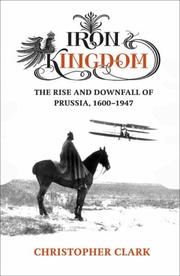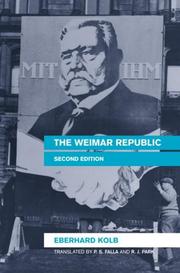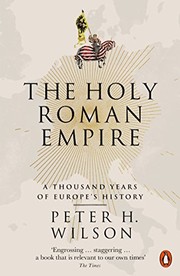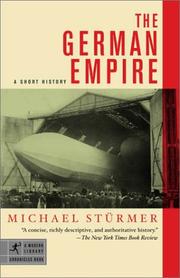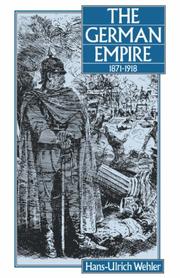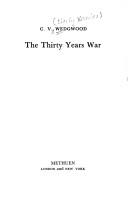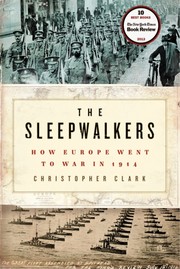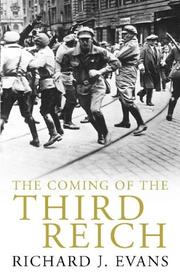Looking to delve into the rich and complex tapestry of German history? From the medieval era to modern times, the best way to gain a deep understanding of Germany’s past is through the pages of a well-researched and compelling book on German history. Whether you’re a history buff or simply curious about the events that have shaped this influential nation, these 20 best books about German history offer a captivating journey through the country’s triumphs, struggles, and pivotal moments. Get ready to immerse yourself in a world of emperors, wars, revolutions, and cultural milestones as we explore the top picks for German history books.
Contents
- 1 20 Best German History Books
- 2 The German War: A Nation Under Arms, 1939-1945
- 3 Iron Kingdom: The Rise and Downfall of Prussia, 1600-1947
- 4 The Third Reich in Power
- 5 The Weimar Republic
- 6 Germany: Memories of a Nation
- 7 The Rise and Fall of the Third Reich
- 8 The Shortest History of Germany
- 9 The Holy Roman Empire: A Thousand Years of Europe’s History
- 10 The German Empire: A Short History
- 11 The German Revolution, 1917-1923
- 12 The German Empire, 1871-1918
- 13 The Rise and Fall of the Third Reich: A History of Nazi Germany
- 14 The Thirty Years War
- 15 The Sleepwalkers: How Europe Went to War in 1914
- 16 Berlin Diary: The Journal of a Foreign Correspondent 1934-1941
- 17 The Coming of the Third Reich
- 18 Mein Kampf
- 19 Germany and Europe: The Crisis of Unity
- 20 The Holocaust: A New History
- 21 Sapiens: A Brief History of Humankind
- 22 Final Thoughts on Best German History Books
- 23
20 Best German History Books
The German War: A Nation Under Arms, 1939-1945
by Nicholas Stargardt
The German War: A Nation Under Arms, 1939-1945 by Nicholas Stargardt is a compelling book about German history that delves into the experiences of ordinary German citizens during World War II. Stargardt provides a gripping account of how the war affected the lives of people from all walks of life, from soldiers on the front lines to civilians on the home front.
The author draws on a wealth of primary sources, including letters, diaries, and interviews, to paint a vivid picture of the emotional and psychological toll of war on the German population. Through personal stories and intimate details, Stargardt offers a unique perspective on the human experience of living through one of the darkest periods of German history.
With meticulous research and engaging storytelling, The German War provides a nuanced and thought-provoking exploration of how a nation was deeply impacted by the turmoil of war. This book on German history is a must-read for anyone interested in gaining a deeper understanding of the human side of World War II.
Iron Kingdom: The Rise and Downfall of Prussia, 1600-1947
by Christopher Clark
Iron Kingdom: The Rise and Downfall of Prussia, 1600-1947 by Christopher Clark is a captivating book about German history that delves into the fascinating story of Prussia. Clark skillfully brings to life the rise of Prussia as a powerful kingdom in the heart of Europe and its eventual downfall in the aftermath of World War II. With meticulous research and engaging narrative, the author explores the political, military, and cultural developments that shaped Prussia over the course of nearly 350 years.
This German history book offers a comprehensive and insightful look at the complex and often turbulent history of Prussia, from its early expansion under the Hohenzollern dynasty to its ultimate dissolution in the aftermath of Nazi Germany. Clark’s compelling storytelling and attention to detail make this book a must-read for anyone interested in European history, military history, or the rise and fall of powerful empires. Iron Kingdom provides a rich and immersive journey through the triumphs and tragedies of one of Europe’s most influential states.
The Third Reich in Power
by Richard J. Evans
The Third Reich in Power by Richard J. Evans is a compelling book on German history that delves into the tumultuous period of Nazi rule. The author provides a detailed and engaging account of how Adolf Hitler and the Nazi Party consolidated their power and transformed Germany into a totalitarian state. Evans examines the various aspects of life under the Third Reich, including the economy, society, culture, and the impact of Nazi policies on the lives of ordinary people. Through meticulous research and analysis, he offers a chilling insight into the mechanisms of repression, propaganda, and control that characterized this dark chapter in German history.
Evans’ narrative is both comprehensive and accessible, making it an essential read for anyone interested in gaining a deeper understanding of this pivotal period in German history. The book is a valuable resource for scholars, students, and general readers seeking to comprehend the complexities of the Nazi regime and its lasting impact on Germany and the world.
The Weimar Republic
by Eberhard Kolb
The Weimar Republic by Eberhard Kolb is a comprehensive and insightful book on German history during the tumultuous period following World War I. This authoritative work provides a detailed account of the political, social, and economic challenges faced by Germany as it transitioned from a monarchy to a democratic republic. Kolb skillfully examines the complex interplay of factors that contributed to the rise and fall of the Weimar Republic, including the impact of the Treaty of Versailles, hyperinflation, and the rise of extremist political movements. Through a meticulous analysis of primary sources and historical events, the author offers readers a compelling narrative of a pivotal era in German history. This book about German history is an essential read for anyone seeking a deeper understanding of the Weimar Republic and its significance in shaping the course of modern Germany. Kolb’s insightful scholarship and engaging writing style make this a must-read for history enthusiasts and scholars alike.
Germany: Memories of a Nation
by Neil MacGregor
Germany: Memories of a Nation by Neil MacGregor is a captivating exploration of the rich and diverse history of Germany. This fascinating book delves into the cultural, political, and social aspects of the country, offering a compelling narrative that spans from ancient times to the present day.
MacGregor skillfully weaves together a tapestry of stories, artifacts, and historical events to paint a vivid picture of the German people and their collective memory. Through the lens of objects such as the Gutenberg Bible, the Brandenburg Gate, and the Volkswagen Beetle, the author provides a unique perspective on the complexities and contradictions of German history.
Readers will gain a deeper understanding of the forces that have shaped Germany, from its early tribal societies to the rise and fall of the Berlin Wall. With insightful analysis and thought-provoking anecdotes, Germany: Memories of a Nation is a must-read for anyone interested in delving into the intricate layers of German history.
The Rise and Fall of the Third Reich
by William L. Shirer
The Rise and Fall of the Third Reich, penned by William L. Shirer, is a seminal book on German history that delves into the dramatic events of the Nazi era. Shirer, an American journalist, provides a gripping account of Adolf Hitler’s rise to power, the totalitarian regime he established, and its eventual collapse. This comprehensive and meticulously researched book about German history offers readers a detailed insight into the political maneuvering, military campaigns, and the horrors of the Holocaust. Shirer’s narrative skillfully intertwines the personal stories of key figures with the broader historical context, bringing the period to life with vivid detail and analysis. The author’s firsthand experiences as a correspondent in Nazi Germany lend authenticity and immediacy to the narrative, making it a compelling read for anyone interested in understanding the complexities of this dark chapter in history. The Rise and Fall of the Third Reich is an essential addition to the library of anyone passionate about German history.
The Shortest History of Germany
by James Hawes
The Shortest History of Germany by James Hawes is a concise and engaging book on German history. Hawes takes readers on a fascinating journey through the key moments and figures that have shaped the German nation, from its early origins to the present day. This book about German history provides a clear and accessible overview of the country’s complex past, including its role in major world events such as the World Wars and the Cold War. Hawes also delves into the cultural, social, and political forces that have influenced Germany’s development, offering readers a well-rounded understanding of the nation’s history. Whether you’re a history buff or simply curious about German history, this German history book is a must-read for anyone seeking a deeper understanding of this influential and enigmatic nation.
The Holy Roman Empire: A Thousand Years of Europe’s History
by Peter H. Wilson
The Holy Roman Empire: A Thousand Years of Europe’s History by Peter H. Wilson is a comprehensive and engaging book on German history that takes readers on a journey through the complexities and dynamics of the Holy Roman Empire. Wilson skillfully navigates through a thousand years of European history, exploring the political, social, and cultural developments that shaped the empire and its impact on the continent. The book delves into the empire’s formation, its relationship with the papacy, the rise of the Habsburg dynasty, and the challenges it faced from within and beyond its borders.
Wilson’s meticulous research and vivid storytelling bring to life the key figures, battles, and momentous events that defined the Holy Roman Empire. Through his expert analysis, readers gain a deeper understanding of the empire’s influence on the development of modern Europe. Whether you are a history enthusiast or a student of European history, this book about German history is a captivating and illuminating read that sheds light on the enduring legacy of the Holy Roman Empire.
The German Empire: A Short History
by Michael Stürmer
The German Empire: A Short History by Michael Stürmer is a captivating book on German history that offers a concise yet comprehensive look at the rise and fall of the German Empire. Stürmer, a renowned historian, delves into the complexities of German history, from the unification of the German states under Otto von Bismarck to the empire’s tumultuous involvement in World War I and its subsequent collapse. The book provides a rich exploration of the political, social, and cultural developments that shaped the German Empire, offering readers valuable insights into the forces that influenced the nation’s trajectory.
Stürmer’s engaging narrative and insightful analysis make this book about German history an essential read for anyone seeking to understand the pivotal moments and key figures that defined the German Empire. Whether you are a history enthusiast or a student of international relations, this German history book is sure to enlighten and captivate with its vivid storytelling and scholarly expertise.
The German Revolution, 1917-1923
by Pierre Broué
The German Revolution, 1917-1923 by Pierre Broué is a pivotal book on German history that delves into the tumultuous period of political and social upheaval in Germany following World War I. Broué provides a comprehensive overview of the events that led to the collapse of the German Empire and the subsequent rise of revolutionary movements, including the Spartacist Uprising and the Bavarian Soviet Republic. Through meticulous research and compelling storytelling, Broué sheds light on the complex dynamics of power struggles, class conflicts, and ideological battles that shaped the course of the German history book.
Readers will be captivated by Broué’s vivid portrayal of the key figures and pivotal moments of the revolution, as well as his insightful analysis of the broader impact of these events on European history. Whether you are a scholar, a history enthusiast, or simply curious about this pivotal period in German history, this book is an essential read that offers a nuanced understanding of a transformative era.
The German Empire, 1871-1918
by Hans-Ulrich Wehler
The German Empire, 1871-1918 by Hans-Ulrich Wehler is a comprehensive and engaging book on German history during the late 19th and early 20th centuries. Wehler, a prominent German historian, provides a detailed analysis of the political, social, and economic developments that shaped the German Empire during this pivotal period. Through meticulous research and insightful commentary, Wehler offers a compelling narrative of the rise and fall of the German Empire, exploring key events such as the unification of Germany, the expansion of the country’s industrial base, and the complex dynamics of power within the empire.
Wehler’s book about German history is an essential read for anyone interested in understanding the complexities of the German Empire and its impact on the broader European context. With its rich detail and nuanced perspective, The German Empire, 1871-1918 is a valuable resource for students, scholars, and history enthusiasts seeking a deeper understanding of this transformative era in German history.
The Rise and Fall of the Third Reich: A History of Nazi Germany
by William L. Shirer
The Rise and Fall of the Third Reich: A History of Nazi Germany by William L. Shirer is a comprehensive and chilling account of the turbulent period of German history leading up to and during World War II. Shirer, a journalist and war correspondent, provides a gripping narrative that delves into the rise of Adolf Hitler and the Nazi Party, their ascent to power, and the subsequent devastating consequences for Germany and the world.
Through meticulous research and firsthand experience, Shirer exposes the inner workings of the Nazi regime, including the propaganda machine, the persecution of minorities, and the ruthless pursuit of power. This book offers a gripping and detailed examination of the events that shaped the course of the 20th century, shedding light on the complex motivations and actions of those involved.
With its vivid storytelling and insightful analysis, The Rise and Fall of the Third Reich is a definitive work on German history that continues to be a crucial resource for understanding the darkest chapter of the 20th century.
The Thirty Years War
by C. V. Wedgwood
The Thirty Years War by C. V. Wedgwood is a captivating book on German history that delves into one of the most devastating and transformative conflicts in European history. Wedgwood’s compelling narrative skillfully brings to life the complex web of religious, political, and dynastic tensions that ignited the war, and the devastating impact it had on the people and nations involved. Through vivid storytelling and meticulous research, Wedgwood provides a comprehensive overview of the key events and personalities that shaped this pivotal period in German history, from the Bohemian Revolt to the Peace of Westphalia. Readers will gain a deep understanding of the war’s far-reaching consequences, including the redrawing of European borders and the shift in power dynamics among the continent’s major players. This book about German history is a must-read for anyone seeking to grasp the complexities of this tumultuous era and its lasting legacy.
The Sleepwalkers: How Europe Went to War in 1914
by Christopher Clark
The Sleepwalkers: How Europe Went to War in 1914 by Christopher Clark is a compelling and thorough exploration of the events leading up to World War I. Clark’s book on German history provides a detailed account of the political, social, and military factors that culminated in the outbreak of the war, challenging the traditional narrative of inevitable conflict. Through meticulous research and analysis, Clark paints a vivid picture of the complex web of alliances, rivalries, and miscalculations that ultimately plunged Europe into chaos.
With a keen focus on the key players and their decision-making processes, the book about German history sheds light on the interconnectedness of the major powers and the cascading series of events that led to the devastating conflict. Clark’s insightful narrative and fresh perspective on the war’s origins make this German history book a must-read for anyone interested in understanding the complexities of early 20th-century Europe and the factors that led to one of the most significant conflicts in human history.
Berlin Diary: The Journal of a Foreign Correspondent 1934-1941
by William L. Shirer
Berlin Diary: The Journal of a Foreign Correspondent 1934-1941 by William L. Shirer is a captivating memoir that provides a firsthand account of the tumultuous events leading up to World War II. Shirer, a seasoned journalist, offers a gripping narrative of his experiences as a foreign correspondent in Berlin during the rise of the Nazi regime. His diary entries provide a riveting insight into the political climate, social unrest, and the gradual erosion of civil liberties in Germany during this pivotal period.
Shirer’s vivid descriptions and personal observations make this book on German history a compelling read for anyone interested in gaining a deeper understanding of the events that led to the outbreak of World War II. His keen insights and detailed accounts of key historical figures and events offer a unique perspective on this critical juncture in German history. Berlin Diary is an essential read for anyone seeking to delve into the complexities of this turbulent era.
The Coming of the Third Reich
by Richard J. Evans
The Coming of the Third Reich by Richard J. Evans is a riveting book on German history that meticulously examines the factors that led to the rise of the Nazi regime. Evans delves into the socio-political landscape of Germany in the early 20th century, exploring the economic turmoil, social unrest, and political maneuvering that paved the way for Adolf Hitler’s ascent to power.
Through detailed research and insightful analysis, Evans provides a comprehensive account of the events and ideologies that shaped the German history during this pivotal period. He explores the impact of World War I, the Weimar Republic’s fragile democracy, and the radicalization of German society, offering a compelling narrative of how a democratic nation succumbed to totalitarianism.
With its engaging storytelling and scholarly depth, The Coming of the Third Reich is an essential book about German history that offers valuable insights into the complexities of power, ideology, and human behavior. It is a must-read for anyone seeking to understand the origins of one of the darkest chapters in German history.
Mein Kampf
by Adolf Hitler
Mein Kampf, written by Adolf Hitler, is a controversial and influential book on German history. In this autobiographical manifesto, Hitler outlines his political ideology and future plans for Germany. The book provides insight into Hitler’s early life, his experiences in World War I, and his rise to power in the Nazi party.
Mein Kampf translates to “My Struggle,” and it reflects Hitler’s vision for a racially pure Germany and his disdain for democracy, communism, and internationalism. Through this book, Hitler aimed to spread his radical ideas and gain support for his extremist views. Despite its notoriety and the atrocities committed by the Nazi regime, Mein Kampf continues to be studied by historians and political scientists as a primary source for understanding the origins of World War II and the Holocaust.
For anyone interested in delving into the depths of German history, this book about German history provides a chilling and essential perspective on the origins of one of the darkest periods in human history.
Germany and Europe: The Crisis of Unity
by David Marsh
Germany and Europe: The Crisis of Unity by David Marsh is a thought-provoking book on German history that delves into the intricate relationships and dynamics between Germany and the rest of Europe. Marsh skillfully navigates through the complexities of the German history and its impact on the broader European landscape, exploring the challenges and opportunities that have arisen from the country’s influential position in the continent.
The book offers a compelling analysis of the historical, political, and economic forces that have shaped Germany’s role in Europe, shedding light on the tensions and fractures that have emerged within the European Union. Marsh’s insightful narrative provides a comprehensive understanding of the crises that have tested the unity of Europe and the pivotal role that Germany has played in addressing these challenges.
With its in-depth exploration of the intricate interplay between Germany and Europe, this book about German history is a must-read for anyone seeking a deeper comprehension of the forces at play in the continent’s historical and contemporary landscape.
The Holocaust: A New History
by Laurence Rees
The Holocaust: A New History by Laurence Rees is a groundbreaking book about German history that offers a fresh perspective on one of the most devastating events of the 20th century. Rees, a renowned historian and documentary filmmaker, delves into the complexities of the Holocaust, shedding new light on the motivations and actions of those involved.
Through meticulous research and compelling storytelling, Rees examines the experiences of both the perpetrators and the victims, providing a comprehensive understanding of the historical, social, and political factors that led to the systematic genocide of six million Jews and millions of others.
This book on German history challenges conventional narratives and offers a nuanced portrayal of the individuals and institutions that played a role in the Holocaust. Rees’ accessible writing style and powerful insights make this an essential read for anyone seeking a deeper understanding of this dark chapter in history.
With its compelling narrative and thought-provoking analysis, The Holocaust: A New History is a must-read for anyone interested in German history or the complexities of human behavior in times of extreme conflict.
Sapiens: A Brief History of Humankind
by Yuval Noah Harari
Sapiens: A Brief History of Humankind by Yuval Noah Harari is a captivating exploration of the history of human beings. In this illuminating book, Harari takes readers on a journey through the major milestones of human evolution, from the emergence of Homo sapiens in Africa to the present day. He delves into various aspects of human history, including the Agricultural Revolution, the development of complex societies, and the impact of technology on our species.
Harari’s narrative is both thought-provoking and engaging, offering readers a fresh perspective on the forces that have shaped our world. Through meticulous research and insightful analysis, he challenges conventional wisdom and presents new insights into our shared past. Whether you’re a history enthusiast or simply curious about the story of our species, Sapiens is a must-read that will leave you with a deeper understanding of our place in the world.
Final Thoughts on Best German History Books
In conclusion, these 20 best books about German History provide a comprehensive and insightful look into the rich and complex history of Germany. From the rise and fall of the Third Reich to the reunification of East and West Germany, these books offer a deep dive into the political, social, and cultural forces that have shaped the country. Whether you’re a history enthusiast or simply interested in learning more about Germany, these books are essential reads that will broaden your understanding of this fascinating nation.
Which book about German History is best?
The best book on German History can vary with personal preference, but three widely recommended titles are:
- The German War: A Nation Under Arms, 1939-1945 by Nicholas Stargardt,
- Iron Kingdom: The Rise and Downfall of Prussia, 1600-1947 by Christopher Clark,
- The Third Reich in Power by Richard J. Evans.
Each offers valuable insights and could be a great starting point.
What are the best books to learn about German History?
For those looking to learn about German History, there is a wealth of literature that can provide a comprehensive understanding of the subject. Some of the most highly recommended books include:
- The German War: A Nation Under Arms, 1939-1945 by Nicholas Stargardt,
- Iron Kingdom: The Rise and Downfall of Prussia, 1600-1947 by Christopher Clark,
- The Third Reich in Power by Richard J. Evans,
- The Weimar Republic by Eberhard Kolb,
- Germany: Memories of a Nation by Neil MacGregor,
- The Rise and Fall of the Third Reich by William L. Shirer,
- The Shortest History of Germany by James Hawes,
- The Holy Roman Empire: A Thousand Years of Europe’s History by Peter H. Wilson,
- The German Empire: A Short History by Michael Stürmer,
- The German Revolution, 1917-1923 by Pierre Broué
These books offer a range of perspectives on German History, covering various aspects and approaches to the subject.
What are the best books about German History?
The best books about German History are:
- The German War: A Nation Under Arms, 1939-1945 by Nicholas Stargardt,
- Iron Kingdom: The Rise and Downfall of Prussia, 1600-1947 by Christopher Clark,
- The German Empire, 1871-1918 by Hans-Ulrich Wehler,
- The Rise and Fall of the Third Reich: A History of Nazi Germany by William L. Shirer,
- The Holy Roman Empire: A Thousand Years of Europe’s History by Peter H. Wilson,
- The Rise and Fall of the Third Reich by William L. Shirer.
Each offers unique insights into the subject. While these books about German History are highly regarded, it’s important to note that any list of ‘best’ books is subjective and reflects a range of opinions.
What are the best German History books of all time?
Choosing the best German History books of all time can vary depending on who you ask, but five titles that are often celebrated include
- The German War: A Nation Under Arms, 1939-1945 by Nicholas Stargardt,
- Iron Kingdom: The Rise and Downfall of Prussia, 1600-1947 by Christopher Clark,
- Germany: Memories of a Nation by Neil MacGregor,
- The Holy Roman Empire: A Thousand Years of Europe’s History by Peter H. Wilson,
- and The German Empire, 1871-1918 by Hans-Ulrich Wehler.
Each of these books has made a significant impact in the field of German History and continues to be influential today.


